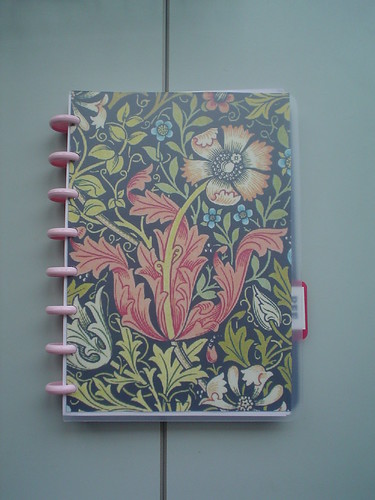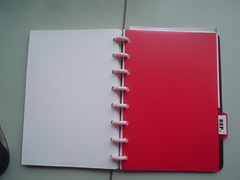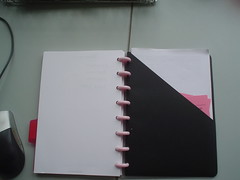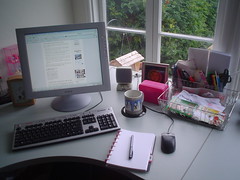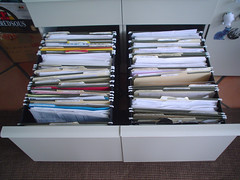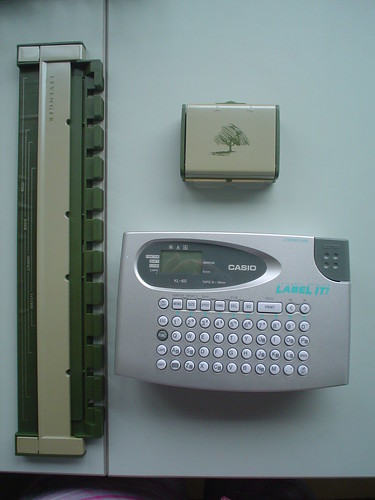Ready for Anything - Part Four
This section is called Relax and Get In Motion, or, How to Be Where the Action Is. Below are the segments and my notes.
40. You're the only one playing your game.
The nature of today's knowledge work requires skills that are not yet widely recognized, such as defining one's actions, making decisions, and dealing with an overwhelming amount of "incoming stuff." "I contend that a competitive edge, personal and organizational, is maintained by one's ability to deal with surprise."
41. Too controlled is out of control.
Don't get caught up in the minutiae your organizational system and become an "organizing groupie." You still need to work and think. "[I]t's really about capturing, catalyzing, and executing creative thinking, not about 'getting organized.'"
42. The better you get, the better you'd better get.
As you start to make better decisions and maintain control over your work, your attention will move on to bigger issues. You will always have to engage with the world, at more and more challenging levels. No ABC priority list can change that fact.
43. Trusting your action choice requires multilevel self-management.
"[P]ristine organization of your details does not ensure truly productive activity." There is no simple answer to the question of what is the best thing for you to be doing at any moment. You have to trust your intuition. You exist on many levels, and you need to pay attention to all of them.
44. Your power is proportional to your ability to relax.
"Find out what's stressing you, and deal with it--now--if you want to be truly effective on all levels at once." The freer and more relaxed you are, the more productive you are.
45. Surprises, expected, are no surprise.
"Denial of the reality of constant change produces resistance and frustration." You have to prepare for the worst and think about how you would deal with it if you had to.
46. The longer your horizon, the smoother your moves.
Sometimes the habits that you have developed outlive their usefulness, and you need to make a change. Sometimes we have to give up our comfortable ways of doing things and take risks in order to regain our energy and enthusiasm.
47. You speed up by slowing down.
"You must constantly let go, relax, and refocus." By taking a break, you re-energize yourself and allow yourself to see things differently. You sometimes have to force yourself to do so.
48. You don't have time to do any project.
"...you actually can't do a project--you can only do action steps." Be honest with yourself about which projects are "long term" and which are "someday maybe." It's a subtle and tempting difference that often leads to procrastination.
49. Small things, done consistently, create major impact.
This is true for both positive and negative behaviors.
50. You have to do something to know something.
The people who need GTD the most are the least likely to use it. To work on productivity, you have to believe that you are in control of your life and you have to want to go somewhere different than where you are. Not everyone feels that way.
51. It's easier to move when you're in motion.
"If you're positively engaged, with any part of your life, it is easier to deal with change and to get anything else done." GTD makes you feel better because you're taking control of your life.
52. The biggest successes come from the most failures.
Just keep trying, and don't let setbacks derail you. Everything you try gets you a little closer to where you want to be, either because it's the right thing to be doing, or because it teaches you about the wrong way to go.
